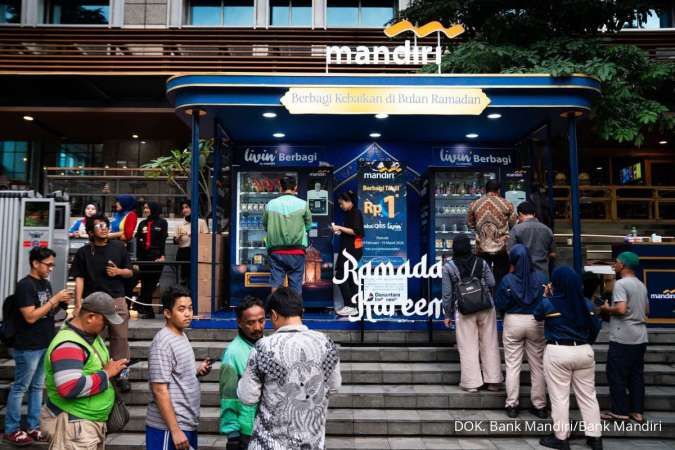Publicly listed diversified group PT Astra International — Indonesia’s biggest auto retailer — is anticipating weaker sales for four- and two-wheelers next year due to expectations for policies set to take effect in 2013. Among challenges that might undermine the firm’s sales growth are a new rule on loan-to-value (LTV) ratios for sharia financing for purchase credits, following introduction of a similar rule that came into force this year for commercial lenders this year, and a potential fuel price hike if fuel subsidies are reduced, Astra president director Prijono Sugiarto said.Car and motorbike sales comprise around 50 percent of the group’s business, while automotive-related financing comprises about 10 percent.“Some challenges that we will face next year are not new, as they have taken effect and impacted our business. As they continue, it will be harder for us,” Prijono said.Under the LTV rule, which came into effect in June, Bank Indonesia (BI) raised minimum down payments for car and motorcycle purchases to avert a potential credit bubble and an excessive jump in the number of consumer loans. The rule will be expanded in April to include sharia-based credits, which have become an alternative source of lending, following the higher down payments required for traditional lenders.The rule has markedly decreased sales in the overall two-wheeler market, which dropped 15.1 percent to 6.03 million units between January and October, compared to the same period last year, according to the Indonesian Motorcycle Industry Association (AISI). Meanwhile, car sales have not been effected deleteriously, growing 23.71 percent to 923,132 units in the first 10 months, the Indonesian Automotive Industry Association (Gaikindo) said.Gaikindo has projected that the number of cars sold next year would remain around 1 million next year, the same level estimated for this year, while AISI has forecast that motorcycle sales might drop 20 percent in 2013 from an estimated 7 million this year.Joko Trisanyoto, marketing director of Astra subsidiary Toyota Astra Motor, Indonesia’s biggest automobile seller, said that his firm hoped to retain its share of the nation’s car sales market for 2013 at around the 36 percent share it plans on booking this year.Toyota expects that the Toyota Agya, scheduled for rollout next year, will comprise 20 percent of Toyota’s total sales for 2013, Joko added.The Toyota Agya, which the firm produces with Astra Daihatsu Motor (ADM), is its eco-friendly car produced fir a low cost and slated to join the government’s fuel efficiency program.Johannes Loman, executive vice president director of PT Astra Honda Motor, Indonesia’s largest motorcycle seller, was pessimistic, saying that sales would likely expand by 5 percent to around 4.3 million units as key commodity prices such palm oil and rubber would not soon recover to normal levels due to uncertain developments in the global economy. Many motorcycle potential buyers work on mining and plantation sectors. (Linda Yulisman/The Jakarta Post)
Astra expects weaker auto sales growth
Publicly listed diversified group PT Astra International — Indonesia’s biggest auto retailer — is anticipating weaker sales for four- and two-wheelers next year due to expectations for policies set to take effect in 2013. Among challenges that might undermine the firm’s sales growth are a new rule on loan-to-value (LTV) ratios for sharia financing for purchase credits, following introduction of a similar rule that came into force this year for commercial lenders this year, and a potential fuel price hike if fuel subsidies are reduced, Astra president director Prijono Sugiarto said.Car and motorbike sales comprise around 50 percent of the group’s business, while automotive-related financing comprises about 10 percent.“Some challenges that we will face next year are not new, as they have taken effect and impacted our business. As they continue, it will be harder for us,” Prijono said.Under the LTV rule, which came into effect in June, Bank Indonesia (BI) raised minimum down payments for car and motorcycle purchases to avert a potential credit bubble and an excessive jump in the number of consumer loans. The rule will be expanded in April to include sharia-based credits, which have become an alternative source of lending, following the higher down payments required for traditional lenders.The rule has markedly decreased sales in the overall two-wheeler market, which dropped 15.1 percent to 6.03 million units between January and October, compared to the same period last year, according to the Indonesian Motorcycle Industry Association (AISI). Meanwhile, car sales have not been effected deleteriously, growing 23.71 percent to 923,132 units in the first 10 months, the Indonesian Automotive Industry Association (Gaikindo) said.Gaikindo has projected that the number of cars sold next year would remain around 1 million next year, the same level estimated for this year, while AISI has forecast that motorcycle sales might drop 20 percent in 2013 from an estimated 7 million this year.Joko Trisanyoto, marketing director of Astra subsidiary Toyota Astra Motor, Indonesia’s biggest automobile seller, said that his firm hoped to retain its share of the nation’s car sales market for 2013 at around the 36 percent share it plans on booking this year.Toyota expects that the Toyota Agya, scheduled for rollout next year, will comprise 20 percent of Toyota’s total sales for 2013, Joko added.The Toyota Agya, which the firm produces with Astra Daihatsu Motor (ADM), is its eco-friendly car produced fir a low cost and slated to join the government’s fuel efficiency program.Johannes Loman, executive vice president director of PT Astra Honda Motor, Indonesia’s largest motorcycle seller, was pessimistic, saying that sales would likely expand by 5 percent to around 4.3 million units as key commodity prices such palm oil and rubber would not soon recover to normal levels due to uncertain developments in the global economy. Many motorcycle potential buyers work on mining and plantation sectors. (Linda Yulisman/The Jakarta Post)

